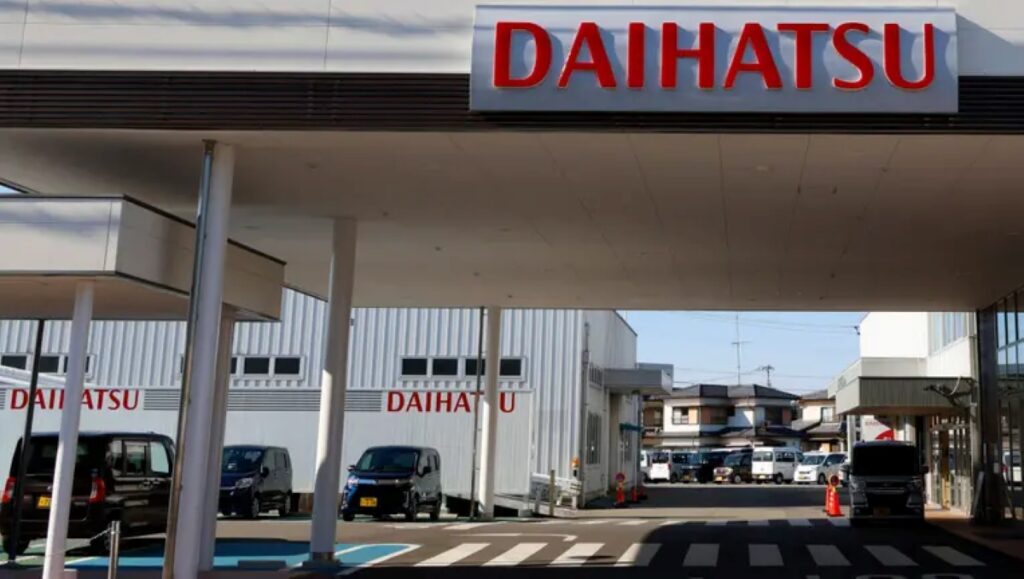Toyota, a titan in the automotive industry, is again at the center of controversy. This time, it’s not due to groundbreaking innovation or record-breaking sales but rather due to a significant lapse in safety standards within its subsidiary, Daihatsu.
Daihatsu, known for its production of compact vehicles, has been a part of the automotive industry for nearly a century. Initially operating independently, Daihatsu caught the eye of Toyota, which acquired a controlling stake in the company in 1998. By 2016, Daihatsu had become a full subsidiary of Toyota, making the automotive giant responsible for its operations.
Recently, Daihatsu admitted to falsifying safety tests for its famous “kei cars” over the past three decades. The revelation shook the automotive world and cast doubt on the integrity of Daihatsu’s manufacturing processes. An internal investigation uncovered even more instances of deception, revealing a total of 174 cases of safety test manipulation dating back to the 1980s.
The safety breaches Daihatsu identified included difficulties opening doors from the outside and improper modifications to the front seat door lining. Most critically, Daihatsu confessed to violating side collision test procedures, which is a severe lapse that undermines the safety of its vehicles.
ALSO READ: Man Who Recently Received Medal of Honor Dies at 81
In response to these revelations, Daihatsu took decisive action. According to Daihatsu, the four factories in Japan closed in January 2024. In a public apology, the company’s CEO, Soichiro Okudaira, acknowledged the company’s betrayal of customer trust and vowed to implement comprehensive measures to rebuild stakeholder confidence.
They will need to fix many of the processes and policies the factories have used for the past 30 years to assure people these cars are safe to drive.
POLL — Should the Government Increase Taxes on the Wealthy To Reduce Economic Inequality?
However, the repercussions extend beyond Daihatsu’s immediate operations as the parent company of Daihatsu, Toyota, of course, is responsible for its dangerous choices, and the giant manufacturer has already made a statement in that regard.
A spokesperson said that Toyota believes Daihatsu requires a “fundamental reform” and plans to completely change how the company makes and tests its vehicles before reopening the factories.
The timing of this scandal couldn’t be any worse for Toyota, which is already grappling with safety issues. On the same day Daihatsu’s transgressions came to light, Toyota initiated a recall of one million vehicles due to passenger airbag defects.
ALSO READ: Amazon Fires Alabama Delivery Driver Who Shot Dog After Visiting Wrong Home
Toyota finds itself in a precarious state with mounting pressure to transition to electric vehicles. Between the Daihatsu scandal, the airbag recall, and the ever-increasing pressure to build more and more electric cars. Toyota is quite behind in its production and technology; now, even its reputation is quickly falling apart.
The Daihatsu safety scandal underscores the challenges automotive giants like Toyota face in maintaining rigorous safety standards and adapting to evolving industry demands. As the company navigates this crisis, restoring trust and rectifying systemic failures will be paramount to safeguarding its future.
You Might Also Like:
Jack Smith Calls Out Judge Cannon’s Error in Court Filing, Citing Her Past Cases
Colorado City Residents Protest Idea of Becoming Sanctuary City for Migrants
“We Have to Get This Done Now!” Rep Pushes for Ukraine Aid Days After Visiting the Country
Rep Andy Kim Gains Momentum Over Tammy Murphy in Bid to Replace Bob Menendez
Biden’s Biggest Threat in the Upcoming Elections Isn’t His Shaky Memory But the War in Israel
